Understanding Sexual Dysfunction
Sexual dysfunction encompasses various issues that prevent an individual from experiencing satisfaction during sexual activity. This can stem from both physical and psychological sources.
Physical Causes of Sexual Dysfunction
Sexual dysfunction’s physical causes include diseases, conditions, medications, and lifestyle factors. Common physical contributors include:
- Diseases and Conditions: Vascular disease, diabetes, hormonal imbalances, and neurological conditions can disrupt normal sexual function (Cleveland Clinic).
- Medications: Certain medications, such as blood pressure drugs and antidepressants, can have adverse effects on libido and sexual performance. Both over-the-counter (OTC) and prescription medications can contribute to these issues.
- Alcohol and Drug Use: Excessive alcohol consumption and recreational drug use can impair sexual function.
- Medical Treatments: Procedures like surgery and radiation therapy in the pelvic area can cause nerve damage affecting sexual function.
| Physical Cause | Example |
|---|---|
| Diseases | Vascular Disease, Diabetes, Hormonal Imbalances |
| Medications | Blood Pressure Drugs, Antidepressants |
| Lifestyle Factors | Alcohol Abuse, Recreational Drug Use |
| Medical Treatments | Surgery, Radiation Therapy |
Psychological Causes of Sexual Dysfunction
Psychological causes of sexual dysfunction are varied and complex. Factors influencing sexual function include:
- Mental Health Issues: Conditions such as depression, types and treatments of anxiety disorders, and stress can significantly impact sexual desire and performance.
- Emotional Distress: Guilt related to sexual activity, body image concerns, and low self-esteem can contribute to sexual dysfunction.
- Relationship Problems: Poor communication with a partner and unresolved relationship conflicts can act as substantial barriers to a fulfilling sexual life.
- Past Trauma: Experiences of rape, molestation, or negative sexual encounters can lead to ongoing sexual dysfunction.
| Psychological Cause | Example |
|---|---|
| Mental Health Issues | Depression, Anxiety, Stress |
| Emotional Distress | Guilt, Body Image Concerns, Low Self-Esteem |
| Relationship Problems | Poor Communication, Conflicts |
| Past Trauma | Rape, Molestation, Negative Sexual Experiences |
Understanding sexual dysfunction involves recognizing both the physical and psychological causes. This multifaceted approach assists in identifying effective interventions, such as psychological therapy and medical treatments, to improve overall sexual health and quality of life.
Prevalence of Sexual Dysfunction
Sexual dysfunction is a common issue that affects many people across different ages and backgrounds. Understanding the prevalence of sexual dysfunction can help in grasping the scope and significance of this condition.
Statistics on Sexual Dysfunction
Numerous studies highlight the widespread nature of sexual dysfunction. According to the Cleveland Clinic, sexual dysfunction affects between 30% and 40% of people at some point in their lives. Although it can occur at any age, it is more prevalent among individuals over 40.
| Demographic | Prevalence |
|---|---|
| General Population | 30% – 40% |
| Over 40 Years Old | Higher Prevalence |
Sexual dysfunction encompasses various conditions, including erectile dysfunction, low libido, and issues with sexual arousal and orgasm. Both men and women can experience these problems, which often require different approaches to treatment and management.
Impact on Quality of Life
Sexual dysfunction can significantly impact an individual’s quality of life. According to Frontiers in Psychiatry, this condition can lead to various mental health issues, such as anxiety, sadness, and depression. It can also result in low self-confidence and non-adherence to medication regimens, further affecting daily life and relationships.
| Impact | Effects |
|---|---|
| Mental Health | Anxiety, Sadness, Depression |
| Self-Confidence | Low |
| Medication | Non-adherence |
| Relationships | Strain and Challenges |
Improving one’s lifestyle can also positively influence sexual health, as noted by the Mayo Clinic. Healthy habits, such as reducing alcohol intake, staying physically active, and managing stress, can enhance overall well-being and contribute to a better sex life.
For more information on related topics, you can explore articles on sign of mental health issues and how to talk about mental health. Understanding the prevalence and impact of sexual dysfunction is crucial for developing effective strategies to address and manage this condition.
Treatment Options for Sexual Dysfunction
Various treatment options are available for those experiencing sexual dysfunction. These treatments target underlying causes, use medical interventions, and offer psychological therapies to help individuals regain normal sexual function.
Addressing Underlying Causes
Understanding the root cause is crucial for effective treatment. Physical causes, such as diseases, conditions, medications (like blood pressure medications and antidepressants), can be addressed by modifying or treating these underlying issues. Lifestyle changes, such as improving diet and exercise, can also improve sexual function by influencing vascular nitric oxide production, testosterone levels, and reducing inflammation. For more information on related conditions, visit our section on sign of mental health issues.
Medication and Medical Treatments
Medications play a significant role in treating sexual dysfunction. Phosphodiesterase inhibitors, like sildenafil (Revatio, Viagra), are successful in treating erectile dysfunction in men and have shown potential for some women, notably those experiencing sexual dysfunction from selective serotonin reuptake inhibitors (SSRIs) (Mayo Clinic).
| Medication | Use | Notes |
|---|---|---|
| Sildenafil (Viagra) | Erectile dysfunction in men | Mixed results for women; contraindicated with nitroglycerin |
| Hormone Therapy | Restores hormonal balance | Can aid both men and women (Beaumont Health) |
Medical treatments also include hormone therapy for both men and women to address hormonal imbalances, which can significantly restore sexual function. For more details on holistic health approaches, see anxiety disorder psychiatric and holistic strategies for a stress free life.
Psychological Therapy
Psychological causes of sexual dysfunction can often be addressed through therapy. Cognitive-behavioral therapy (CBT) and sex therapy are particularly effective. These therapies help individuals or couples address sexual anxieties, relationship issues, and other underlying psychological factors contributing to sexual dysfunction.
| \ | Therapy Type | Purpose |
|---|---|---|
| CBT | Cognitive-Behavioral Therapy | Addresses anxieties and depressive thoughts affecting sexual function |
| Sex Therapy | Sexologically Informed Therapy | Focuses on sexual concerns and relationship dynamics |
Therapy can be essential for those with sexual dysfunction linked to mental illness. For more information on treatment approaches for mental health-related issues, explore our section on treatments for post-traumatic stress disorder.
By addressing these various aspects, individuals can find a comprehensive treatment plan tailored to their specific needs.
Sexual Dysfunction in Mental Illness
Association with Mental Illness
There is a significant association between mental illness and sexual dysfunction. Studies indicate that sexual dysfunction among individuals with mental illness is quite prevalent. In a study conducted at Jimma University Medical Center, the prevalence of sexual dysfunction among patients attending follow-up treatment was 45.4%. Various factors contribute to this high prevalence, including chronic medical conditions, long-term psychiatric treatment, and the type of medication used.
Sexual dysfunction can be either primary or secondary to mental illness. Primary sexual dysfunction is directly related to the mental illness, while secondary dysfunction arises as a side effect of medication or other treatments. Depression, anxiety, and psychotropic medications have been found to impact sexual function significantly, with approximately 30% to 70% of individuals experiencing related symptoms (Frontiers in Psychiatry).
For example, around half of patients with schizophrenia on antipsychotic medication experience sexual dysfunction. These medications can cause decreased sexual desire, difficulties in arousal, and problems with orgasm. This is corroborated by findings that sexual dysfunction is common during both short- and long-term treatment with antipsychotics, affecting between 38% and 86% of patients (NCBI).
Impact on Quality of Life
The impact of sexual dysfunction on the quality of life cannot be overstated. Sexual dysfunction can lead to anxiety, sadness, depression, and low self-confidence. These psychological effects often result in non-adherence to prescribed medication as individuals may choose to discontinue treatment due to the side effects. This non-adherence further complicates their primary mental health conditions, creating a vicious cycle.
Individuals with sexual dysfunction often experience significant strain on their personal relationships, leading to feelings of isolation and decreased life satisfaction. Studies report sexual dysfunction percentages ranging from 47% to 73% among patients with conditions such as pelvic floor disorders, epilepsy, mental illnesses, and diabetes mellitus. This correlation highlights the need for comprehensive treatment plans that address both mental health and sexual health.
| Condition | Prevalence of Sexual Dysfunction (%) |
|---|---|
| Schizophrenia (on antipsychotics) | ~50 |
| General population with mental illness | 45.4 |
| Patients with pelvic floor disorder, epilepsy, mental illness, diabetes mellitus | 47 – 73 |
Understanding and addressing the interplay between mental illness and sexual dysfunction is essential for improving both mental and sexual health outcomes. For more on this topic, explore our resources on signs of mental health issues, types and treatments of anxiety disorders, and treatments for post-traumatic stress disorder. A holistic approach to treatment will help individuals manage their symptoms more effectively and improve their overall quality of life.
Lifestyle Factors Influencing Sexual Function
Lifestyle and Nutrition
Lifestyle and nutrition play a crucial role in sexual health. Poor dietary habits can lead to conditions such as obesity and metabolic syndrome, which negatively impact sexual function. Specifically, vascular health, which is vital for erectile function, can be improved through proper nutrition. A Mediterranean diet, rich in fruits, vegetables, whole grains, and olive oil, is associated with lower prevalence of erectile dysfunction (ED).
| Factors | Impact on Sexual Function |
|---|---|
| High intake of fruits and vegetables | Improves vascular health |
| Whole grains | Supports nitric oxide production |
| Olive oil | Reduces inflammation |
Modifiable Risk Factors
There are several modifiable risk factors that can influence sexual function. These include smoking, lack of physical activity, obesity, excessive alcohol consumption, and recreational drug use. Addressing these risk factors can play a significant role in improving sexual health. It is estimated that the global prevalence of ED will increase to 322 million cases by 2025.
| Risk Factors | Modifiable Actions |
|---|---|
| Smoking | Quitting smoking |
| Lack of physical activity | Regular exercise |
| Obesity | Weight loss |
| Excessive alcohol consumption | Reducing alcohol intake |
| Recreational drug use | Avoiding drug use |
Benefits of Exercise
Regular physical activity has numerous benefits for sexual health, especially in preventing and improving ED. Moderate to high levels of physical activity are associated with lower risk of ED. Exercise enhances endothelial function and testosterone levels, and weight loss has been shown to improve erectile function in both short- and long-term studies.
| Exercise | Benefits |
|---|---|
| Moderate to high physical activities | Lower risk of ED |
| Weight loss | Improves erectile function |
| Endothelial function improvement | Enhances vascular health |
| Increase in testosterone levels | Boosts sexual function |
Understanding the impact of lifestyle factors is crucial for those seeking to improve their overall sexual health. For more insights into mental and behavioral health disorders and their treatments, visit our articles on sign of mental health issues and anxiety disorder psychiatric and holistic strategies for a stress free life.
Medical Interventions for Sexual Dysfunction
There are several medical interventions available for addressing sexual dysfunction. These interventions can vary based on the underlying cause and the individual’s specific needs. Below are some of the most common medical treatments used to manage sexual dysfunction.
Hormone Therapy
Hormone therapy can be an effective treatment for individuals experiencing sexual dysfunction due to hormonal imbalances. This therapy is suitable for both men and women. In men, testosterone replacement therapy can help address issues related to low testosterone levels. For women, estrogen therapy might be beneficial, especially for those experiencing menopausal symptoms. According to Beaumont Health, medications like Viagra (sildenafil) can also be used to increase blood flow to the penis, aiding in the treatment of erectile dysfunction.
| Condition | Hormone Treatment | Medication |
|---|---|---|
| Low Testosterone | Testosterone Replacement Therapy (Men) | Viagra (Sildenafil) |
| Menopausal Symptoms | Estrogen Therapy (Women) | N/A |
Device and Implant Options
Various devices and implants are available for individuals experiencing sexual dysfunction. Men who have difficulty achieving or maintaining an erection may benefit from vacuum devices or penis pumps. Penile implants are another option, particularly for those who have lost sensation due to spinal injuries. Women with conditions such as vaginismus can use vaginal dilators to help relax the muscles in the vagina.
| Gender | Device/Implant | Condition |
|---|---|---|
| Men | Vacuum Devices | Erectile Dysfunction |
| Penile Implants | Loss of Sensation | |
| Women | Vaginal Dilators | Vaginismus |
Experimental Treatments
New and evolving treatments continually emerge in the field of sexual health. Some of these treatments have shown promise in clinical trials and are FDA-approved for certain conditions:
- Flibanserin (Addyi): This medication is approved for use before menopause to treat low sexual desire. It is taken daily at bedtime and may boost sex drive. However, it has potential side effects like low blood pressure, sleepiness, and nausea. Flibanserin should not be mixed with alcohol, and discontinuation is recommended if no improvement is observed after eight weeks.
- Bremelanotide (Vyleesi): Also FDA-approved for treating low sexual desire in premenopausal women, this medicine is administered as a shot under the skin before sexual activity. Common side effects include nausea, vomiting, and a skin reaction at the injection site.
- Phosphodiesterase Inhibitors: Medications like sildenafil (Viagra) are sometimes used in treating female sexual dysfunction, especially for those affected by SSRI-induced dysfunction. However, their effectiveness has been mixed.
| Provisional Medication | Purpose | Common Side Effects |
|---|---|---|
| Flibanserin (Addyi) | Treat low sexual desire (women) | Low BP, sleepiness, fatigue, nausea |
| Bremelanotide (Vyleesi) | Treat low sexual desire (women) | Nausea, vomiting, flushing, headache |
| Sildenafil (Viagra) | Improve blood flow (men) | Potential contraindications with nitrates |
For more comprehensive treatment protocols and guidelines, visit our articles on types and treatments of anxiety disorders and treatments for post-traumatic stress disorder.










